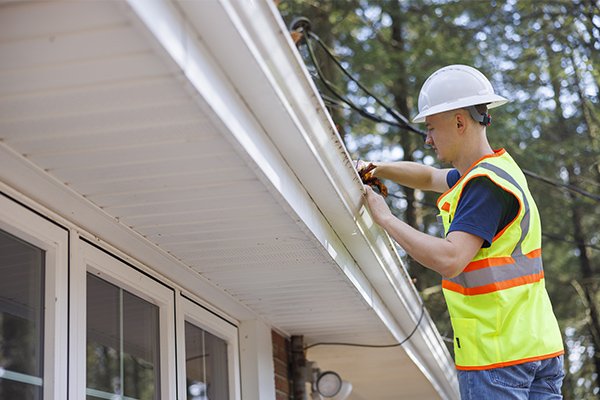Fascia installation is a critical aspect of home construction and renovation. It involves adding a board to the edges of your roof, which not only provides an aesthetic appeal but also offers protection against the elements. In this comprehensive guide, we’ll explore everything you need to know about fascia installation, including its benefits, types, installation process, and maintenance.
What is Fascia?
Fascia is a horizontal board that runs along the edge of your roof, typically where the roof meets the outer walls of the house. It serves as a finishing trim and provides support for the lower edge of the bottom row of roof tiles or shingles. Fascia is usually made from materials such as wood, aluminum, or vinyl.
Benefits of Fascia Installation
1. Enhanced Aesthetic Appeal
Fascia boards provide a clean and finished look to the roofline, improving the overall appearance of your home. They can be painted or stained to match the exterior of your house, adding to its curb appeal.
2. Protection Against Water Damage
Fascia boards help to direct water away from the roof and into the gutters, preventing water from seeping into the roof structure and causing damage. This is particularly important in areas with heavy rainfall.
3. Support for Gutters
Fascia boards provide a stable base for gutter installation. Without a sturdy fascia, gutters can sag or become misaligned, leading to ineffective water drainage and potential damage to the roof and foundation.
4. Pest Prevention
A well-installed fascia can help to keep pests such as birds, squirrels, and insects from entering your attic or roof space. This can prevent infestations and the damage that pests can cause.
Types of Fascia Boards
1. Wood Fascia
Wood fascia boards are traditional and offer a natural look. They can be painted or stained to match the house’s exterior. However, they require regular maintenance to prevent rot, warping, and insect damage.
2. Aluminum Fascia
Aluminum fascia boards are durable, low-maintenance, and resistant to rot and insects. They are available in various colors and finishes, making them a versatile option for many homeowners.
3. Vinyl Fascia
Vinyl fascia boards are another low-maintenance option. They are resistant to moisture and insects and are available in a variety of colors. However, they may not be as durable as aluminum or wood and can be prone to cracking in extreme temperatures.
Fascia Installation Process
1. Preparation
Before installation, ensure the existing roof structure is in good condition. Remove any old or damaged fascia boards and clean the area thoroughly.
2. Measuring and Cutting
Measure the length of the roofline where the fascia will be installed. Cut the fascia boards to the required length, ensuring they fit snugly against the roof and walls.
3. Attaching the Fascia Boards
Begin by attaching the fascia boards to the roof rafters or trusses using nails or screws. Make sure the boards are level and flush with the edge of the roof. If using wood fascia, consider applying a sealant to protect against moisture.
4. Finishing Touches
Once the fascia boards are in place, you can paint or stain them to match the exterior of your house. If you’re installing gutters, this is the time to attach them to the fascia boards.
Maintenance Tips for Fascia Boards
1. Regular Inspections
Inspect your fascia boards regularly for signs of damage, such as cracks, warping, or rot. Early detection can prevent more extensive repairs later.
2. Cleaning
Keep your fascia boards clean by removing dirt, debris, and leaves. This helps to maintain their appearance and prevents the buildup of moisture that can lead to damage.
3. Repainting or Staining
If you have wood fascia, repaint or stain them every few years to protect against the elements. Aluminum and vinyl fascia may only need occasional cleaning to maintain their appearance.
Conclusion
Fascia installation is an essential aspect of maintaining and improving your home’s exterior. Whether you’re building a new home or renovating an existing one, choosing the right type of fascia and ensuring proper installation can enhance your home’s curb appeal, protect against water damage, and provide support for gutters. Regular maintenance will ensure your fascia boards remain in good condition for years to come.
For professional fascia installation services, visit Maxima Aluminum. Our team of experts is dedicated to providing high-quality fascia installation and maintenance to keep your home looking its best.
